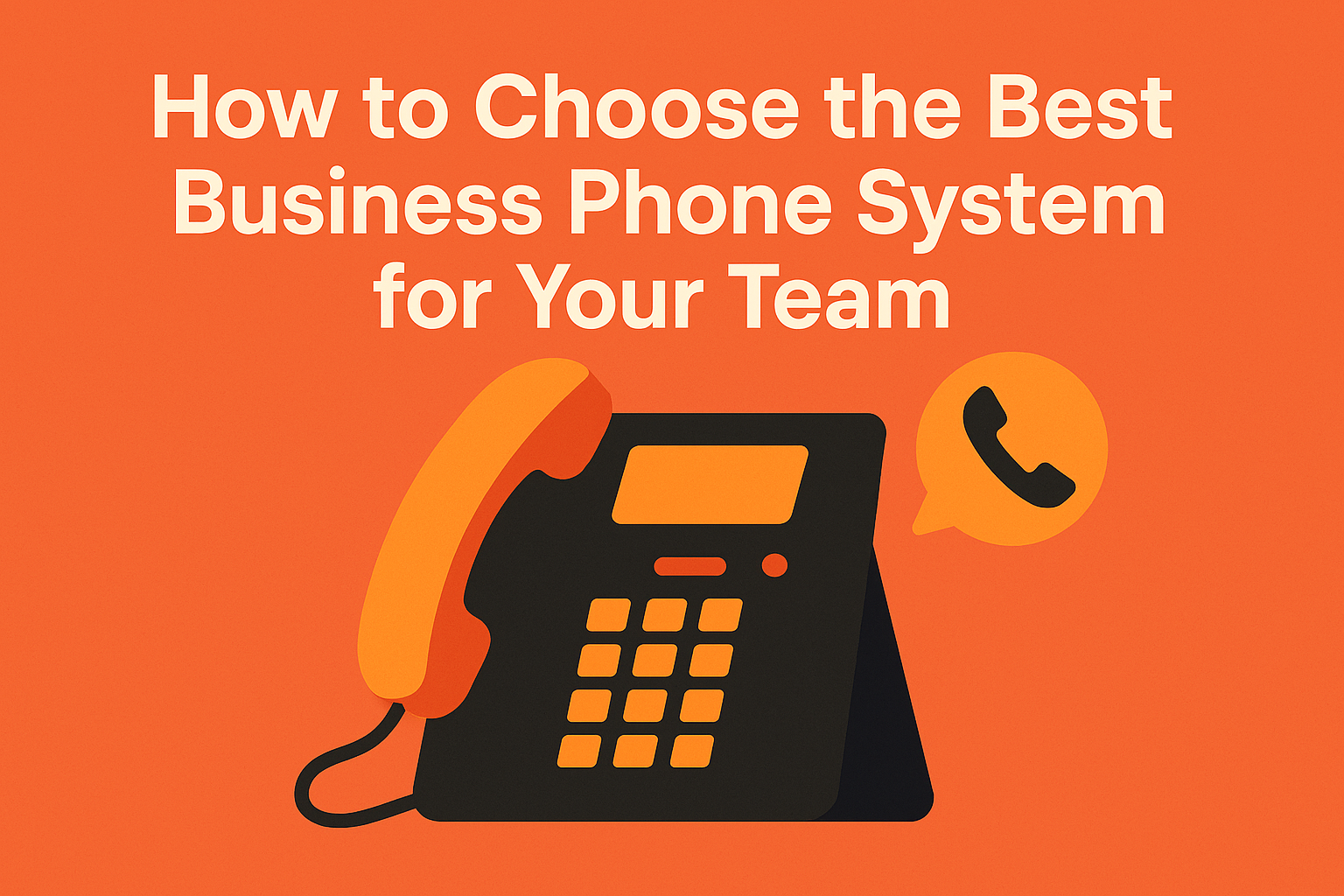Understanding Your Options
Traditional Landlines
Landlines are familiar to many. You get reliable call quality and don’t need internet. However, they are less flexible, often cost more, and lack modern features like remote working or easy call management. Set-up incurs
hardware and sometimes installation fees.
Costs: A business landline can range from $30 to $60 per line per month, often with extra charges for installation, hardware, and advanced features.
Use Case: Best for businesses with very basic needs and no plans to expand or work remotely.
PBX Systems
PBX (Private Branch Exchange) is a private network inside your business. It allows call transferring, voicemail, and more. Traditional PBX uses physical equipment. Setting up a PBX can mean high upfront costs for
equipment and installation. Maintenance can be complex and costly as your business grows.
Costs: Expect $600–$1,000+ upfront for basic systems, plus monthly telecom provider charges.
Use Case: Larger firms with in-house IT and legacy needs.
VoIP and Cloud-Based Phones
VoIP (Voice over Internet Protocol) and cloud-based phone systems have changed the landscape. They use your internet connection, not fixed phone lines, letting you make calls from anywhere—on mobiles, laptops, or
tablets.
Costs: VoIP systems for a small business typically start from $49.50 per month, all-inclusive of local, national, mobile, and 1800 calls (conditions apply). You can scale up or down easily.
Use Case: Ideal for small and midsize businesses needing flexibility, easy remote access, and modern features such as call routing, unified messaging, and collaboration.
What Makes a Great Phone System?
When you choose a business phone system, focus on features that support your workflows, customer service, and mobility.
Call Handling and Routing: Can you easily transfer calls, set up call queues, or direct clients to the right team?
Mobility: Will your team need to answer calls when out of the office? VoIP and cloud phones allow calls on mobiles, tablets, or laptops.
Integration: Does it work with your existing systems (like email, CRM, or helpdesk)?
Scalability: Can you add or remove users easily as your business changes?
Remote work support, voicemail to email, call recording, and video conferencing are now must-haves for many teams.
Is VoIP Worth It for Small Businesses?
In most cases, yes. VoIP lowers costs, delivers more features, and keeps your team connected across locations. Businesses in Cranbourne have reported a smoother, more reliable call experience. For example, Graham
from Camping Adventures says, “Nothing is too much trouble and support is quick and efficient.” By switching, many have eliminated missed calls and confusion during busy periods.
Typical Costs: Landlines vs. VoIP
A landline might look affordable at first, but hidden costs add up. Equipment, service, and maintenance mean ongoing bills and less flexibility.
VoIP is not only cheaper per month, but installation is simpler too. Most small businesses can be up and running in days rather than weeks, and you avoid expensive hardware.
How to Set Up VoIP for Your Business
Getting started with VoIP is easier than you think:
- Assess your internet connection: You’ll need reliable broadband for seamless calls.
- Choose a provider: Look for local support, transparent pricing, and flexible plans.
- Select features: Decide what your team needs—voicemail, call routing, mobile integration, unified communications.
- Set up your devices: You can use phones, headsets, or existing computers. Most systems work with your current network.
- Get support: Ensure your provider offers dedicated account management and proactive support, just like businesses using voip solutions cranbourne receive.
Providers like DSP Communications manage the setup for you, help train your team, and make upgrades simple as your business grows.
What’s the Cheapest Way to Have a Business Phone?
For many modern businesses, VoIP or cloud-based systems are the most affordable. You only pay for what you need, avoid large upfront investments, and often get unlimited calls included. For businesses prioritising
mobile work, options like the cranbourne mobile phone plan can help staff stay connected anywhere, without paying for features you won’t use.
Lessons from Cranbourne Businesses
Local businesses who have switched to VoIP or cloud phone systems highlight:
- Reduced monthly costs
- Better reliability and fewer missed calls
- Easier ways to answer calls from any location
- Dedicated support for quick troubleshooting
A General Manager at a Cranbourne healthcare provider shared, “DSP Communications made our transition smooth, eliminated old equipment headaches, and made staff lives easier.”
Summary
Choosing the best business phone system comes down to understanding your team’s needs, balancing cost with features, and making sure your solution is ready to grow with you. For most small and midsize businesses today, VoIP and cloud-based phone systems deliver the best value, flexibility, and reliability. If you want to explore leading voip systems in cranbourne, DSP Communications is ready to help you set up, train your staff, and keep your business connected—now and in the future.
You don’t have to navigate the options alone. Contact us to discuss your needs and let’s create a phone system that truly works for your business.
